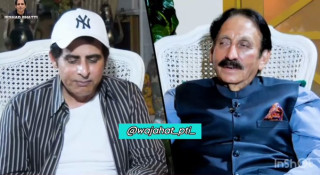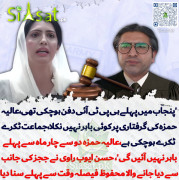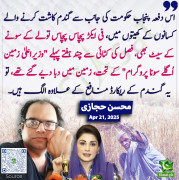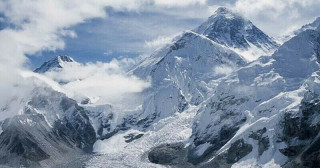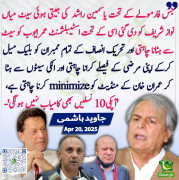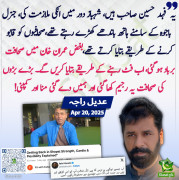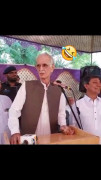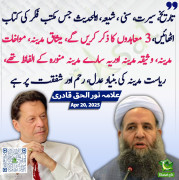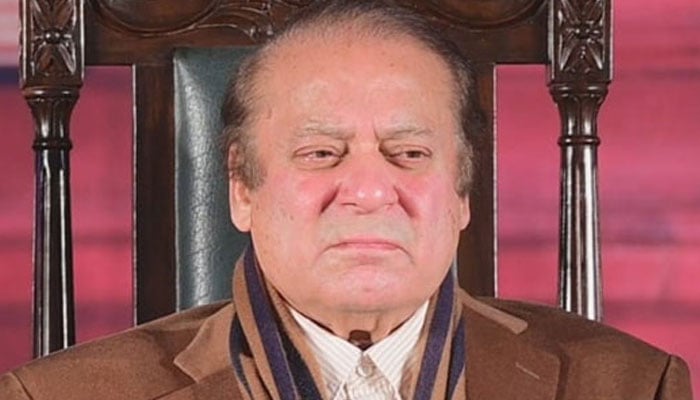By Farhan Bokhari and James Lamont in Lahore
Published: April 1 2009 18:24 | Last updated: April 2 2009 00:01
Nawaz Sharif, the Pakistani opposition leader and former prime minister, on Wednesday criticised the new US strategy for Afghanistan and Pakistan, telling the FT that it was only slightly different from the disastrous one pursued by George W. Bush.
Mr Obama has now come up with a new policy with little changes, very minor changes as compared to the last policy, said Mr Sharif.
EDITORS CHOICE
Transcript: FT interview with Nawaz Sharif - Apr-01
But I think the consultative process is better than what it used to be during Mr Bushs time.
Mr Sharif said Mr Bushs policy had helped promote terrorism by backing General Pervez Musharraf, the former military ruler and president of Pakistan.
[Mr Bush] gave blind support to Mr Musharraf and he turned a blind eye to all the atrocities at home that Mr Musharraf committed in his eight year dictatorial rule[he] never was keen that Pakistan should get back to the democratic path.
Last week, Mr Obama launched a new strategic partnership with Pakistan, offering a combination of military and development assistance to help the country recover the menace of a growing insurgency. He described al-Qaeda as a cancer that risks killing Pakistan from within, and called the border area with Afghanistan the most dangerous place in the world.
Mr Sharif, boosted by a string of political victories, is confident of completing his political comeback, a decade after a military coup swept him from power and forced him into exile.
He says he is resolved to take the fight to Asif Ali Zardari in an effort to force the president to surrender his executive powers and return Pakistan to a parliamentary democracy.
The leader of the Pakistan Muslim League (Nawaz) accused Mr Zardari of breaking promises to give up the enhanced powers he inherited from the military ruler Mr Musharraf.
Well keep pushing now. I am determined to push [to strip the president of his additional powers]. The satisfaction I derive from what Im doing now is much more than I used to get when I was the prime minister of this country, he said.
Mr Sharif sketched a vision of the countrys political future built on strengthening political institutions to keep the army out of power.
His goal is to place Pakistan among the worlds stable democracies, overcoming its propensity for military takeovers and reversing the loss of territory to militant Islamist groups.
Mr Sharifs noble ambition is embodied by the monumental statues of lions, the symbol of his party, adorning the neatly manicured lawns surrounding his palatial house in Lahores Raiwind suburb.
We have a parliamentary democracy in Pakistan as you have in Britain, as they have in India. We want to follow the same system. It is the prime minister who runs the show, who is the chief executive of the country, said Mr Sharif.
He also said he wanted the Charter of Democracy, agreed with Benazir Bhutto, his assassinated political rival, enshrined in law.
Mr Musharraf is a figure of loathing for Mr Sharif. Mr Zardari, by contrast, is simply someone unable to keep his promises and who is failing to lead the country back to stability.
We made a very good beginning in 2008 after the elections and I was very hopeful that now things will move forward because Zardari and I signed that agreement. But soon, Mr Zardari wriggled out of that commitment, said Mr Sharif.
Of course, at the time of Mr Musharrafs resignation again when we were all planning to impeach him, another agreement was signed. That was not honoured by Mr Zardari. I also felt let down, disappointed and dismayed as to why Mr Zardari was not fulfilling his promises.
Mr Sharifs political challenge has grown more potent over the past month, since he and Shahbaz, his younger brother, were disqualified from future political contests in a verdict handed down by the Supreme Court in February.
Mr Sharif responded by taking to the streets to back the cause of the return of Iftikhar Chaudhary as chief justice of the court, two years after he was sacked by Mr Musharraf.
In Lahore, provincial capital of the Punjab, Mr Sharif led several thousand protesters on March 15, paralysing the city and forcing Mr Zardari Bhuttos widower into a humiliating U-turn at the behest of the army, the US and Britain.
Mr Sharif says he will not return to street protests in a hurry. He is prepared to bide his time before making another challenge for power in elections. He says he wants the Pakistan Peoples party (PPP) of Mr Zardari to complete its five-year tenure allowing civilian rule to break new ground in a country where elected politicians have seldom completed their terms of office.
He insists he does not seek the powers of the premiership currently held by the PPPs Yusuf Raza Gilani for any reasons of self-interest.
Published: April 1 2009 18:24 | Last updated: April 2 2009 00:01
Nawaz Sharif, the Pakistani opposition leader and former prime minister, on Wednesday criticised the new US strategy for Afghanistan and Pakistan, telling the FT that it was only slightly different from the disastrous one pursued by George W. Bush.
Mr Obama has now come up with a new policy with little changes, very minor changes as compared to the last policy, said Mr Sharif.
EDITORS CHOICE
Transcript: FT interview with Nawaz Sharif - Apr-01
But I think the consultative process is better than what it used to be during Mr Bushs time.
Mr Sharif said Mr Bushs policy had helped promote terrorism by backing General Pervez Musharraf, the former military ruler and president of Pakistan.
[Mr Bush] gave blind support to Mr Musharraf and he turned a blind eye to all the atrocities at home that Mr Musharraf committed in his eight year dictatorial rule[he] never was keen that Pakistan should get back to the democratic path.
Last week, Mr Obama launched a new strategic partnership with Pakistan, offering a combination of military and development assistance to help the country recover the menace of a growing insurgency. He described al-Qaeda as a cancer that risks killing Pakistan from within, and called the border area with Afghanistan the most dangerous place in the world.
Mr Sharif, boosted by a string of political victories, is confident of completing his political comeback, a decade after a military coup swept him from power and forced him into exile.
He says he is resolved to take the fight to Asif Ali Zardari in an effort to force the president to surrender his executive powers and return Pakistan to a parliamentary democracy.
The leader of the Pakistan Muslim League (Nawaz) accused Mr Zardari of breaking promises to give up the enhanced powers he inherited from the military ruler Mr Musharraf.
Well keep pushing now. I am determined to push [to strip the president of his additional powers]. The satisfaction I derive from what Im doing now is much more than I used to get when I was the prime minister of this country, he said.
Mr Sharif sketched a vision of the countrys political future built on strengthening political institutions to keep the army out of power.
His goal is to place Pakistan among the worlds stable democracies, overcoming its propensity for military takeovers and reversing the loss of territory to militant Islamist groups.
Mr Sharifs noble ambition is embodied by the monumental statues of lions, the symbol of his party, adorning the neatly manicured lawns surrounding his palatial house in Lahores Raiwind suburb.
We have a parliamentary democracy in Pakistan as you have in Britain, as they have in India. We want to follow the same system. It is the prime minister who runs the show, who is the chief executive of the country, said Mr Sharif.
He also said he wanted the Charter of Democracy, agreed with Benazir Bhutto, his assassinated political rival, enshrined in law.
Mr Musharraf is a figure of loathing for Mr Sharif. Mr Zardari, by contrast, is simply someone unable to keep his promises and who is failing to lead the country back to stability.
We made a very good beginning in 2008 after the elections and I was very hopeful that now things will move forward because Zardari and I signed that agreement. But soon, Mr Zardari wriggled out of that commitment, said Mr Sharif.
Of course, at the time of Mr Musharrafs resignation again when we were all planning to impeach him, another agreement was signed. That was not honoured by Mr Zardari. I also felt let down, disappointed and dismayed as to why Mr Zardari was not fulfilling his promises.
Mr Sharifs political challenge has grown more potent over the past month, since he and Shahbaz, his younger brother, were disqualified from future political contests in a verdict handed down by the Supreme Court in February.
Mr Sharif responded by taking to the streets to back the cause of the return of Iftikhar Chaudhary as chief justice of the court, two years after he was sacked by Mr Musharraf.
In Lahore, provincial capital of the Punjab, Mr Sharif led several thousand protesters on March 15, paralysing the city and forcing Mr Zardari Bhuttos widower into a humiliating U-turn at the behest of the army, the US and Britain.
Mr Sharif says he will not return to street protests in a hurry. He is prepared to bide his time before making another challenge for power in elections. He says he wants the Pakistan Peoples party (PPP) of Mr Zardari to complete its five-year tenure allowing civilian rule to break new ground in a country where elected politicians have seldom completed their terms of office.
He insists he does not seek the powers of the premiership currently held by the PPPs Yusuf Raza Gilani for any reasons of self-interest.

